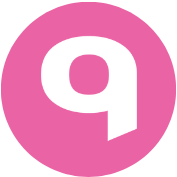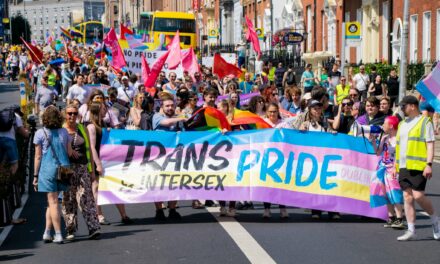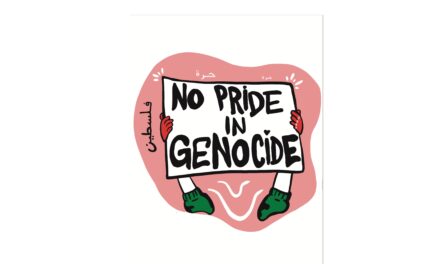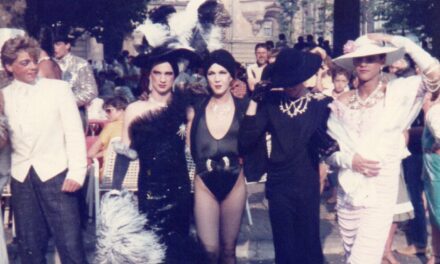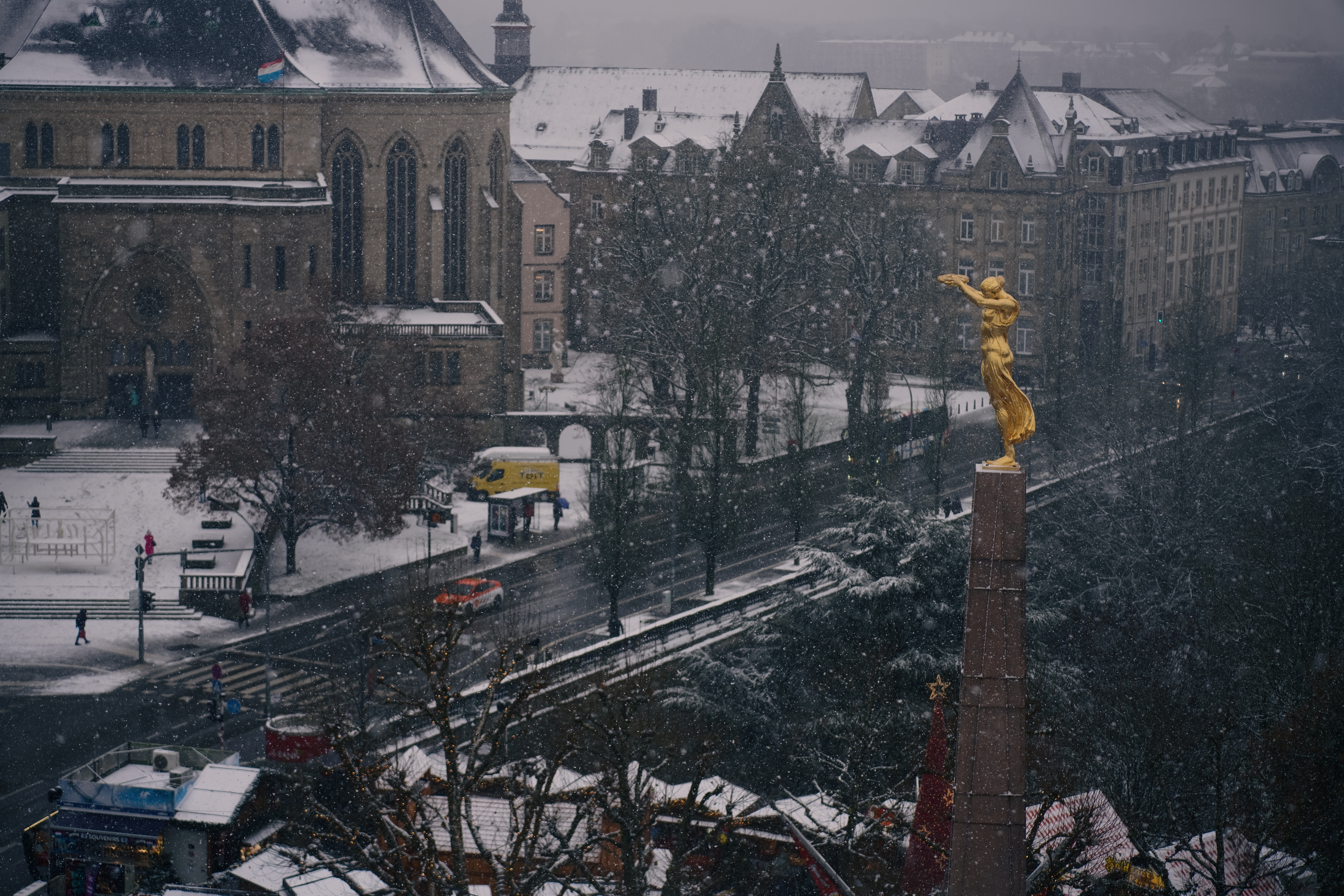
Money. That’s the answer most people interviewed for this article gave when asked: “What would have helped you better settle in your first years in Luxembourg?”. More money could have helped the respondents to rent a flat, to leave the refugee shelters, to get away from homophobic insults and social exclusion. “For many LGBTIQ+ people escaping persecution and hostility in their homelands, the promise of safety in Luxembourg’s asylum system frequently falls short of expectations.” For this article, we spoke to four people who have applied for asylum in Luxembourg. Two of them came in 2015, at the peak of the Syrian refugee crisis. The other two cases are more recent. Two of the protagonists wanted to stay anonymous, the other two spoke openly. All of them assess their right to asylum and all of them have gone through dark times in the process.
I’m too feminine to be lesbian
It is unclear how many queer people seek asylum in Luxembourg. The Ministry of Home Affairs and its immigration department—which is responsible for asylum requests—do not keep records of the reasons for the international protection in the Grand Duchy. The ministry publishes monthly figures on the number of asylum requests, how many were accepted and rejected, and the countries of origin. Whether people fled their countries because of war, as political refugees, or because of gender- or sexuality-based threats and violence does not figure in these statistics. Information on the acceptance rate for specifically LGBTI+ people, therefore, does not exist.
What we know, however, is why queer people are rejected. The refugee rights organisation Passerell Asbl encounters two reasons in its practice. Their director, Marion Dubois, explains: “The authorities either tend to claim that persecutions against LGBTIQ+ people aren’t that bad in their country and do not meet the requirements of the Geneva Convention.” This is the case, for instance, when a country adopts legislation decriminalising homosexuality or when mechanisms are in place to defend LGBTIQ+ rights, by civil society organisations or by the police. “Or they think the person is not really who they claim they are, that they are not really gay, for instance.”
This is what happened to Betty, the first of our protagonists. Betty is wearing metallic pink curly hair, two nose piercings, long eyelashes, and perfectly invisible makeup, topped with pink eyeshadow and lipstick.
They think I’m too feminine to be lesbian. They don’t believe me. It’s so insulting. During the interview, they asked me about my first experience, my first love. But they told me that I didn’t make it sound romantic. Why would I? It’s been over a decade; I have moved on. They asked if I was in a relationship. I was dating this girl at the time, and I even gave them a picture of us kissing on the street, something that I’m not able to do in my country. They said anyone could take this kind of picture, and it doesn’t really show if there is love. How do I prove love? I showed them pictures of me at the Pride with my friends. I even asked them if they wanted to see intimate pictures or videos of me and a girl. I have them. I can show them to you, I said. They said, no, you don’t have to. And I was like, what do you want me to show you? It’s really exhausting.
Betty came to Luxembourg in 2022. She had been living in the Netherlands for years before. In 2011, she was trafficked there from Ethiopia. She had gladly left her country with the promise of education and work. She wanted to become a journalist. Betty does not want to talk about her first years in the Netherlands, about what she had to do to pay her debt to the traffickers. “It brings me to dark places”, she says. She got there anyway. During her time in the Primo Accueil Centre SHUK, she tried to kill herself. “There were only two girls and one family in this whole big place. It was so empty. I was so down, and I had just gotten my rejection”, she says. Afterward, she was hospitalised for two months and then transferred to a different shelter.
When Betty came to Luxembourg, the immigration department was suspicious. She had already requested asylum in the Netherlands a couple of years ago. She was 19 when she came to Europe; after a while, she managed to press charges against her traffickers and got police protection during the procedure, but the investigations did not lead anywhere, and when the charges were dropped, Betty lost her protection status. She applied for asylum because of her sexuality, but got rejected. Ever since, she has lived undocumented in the Netherlands, working in undeclared jobs in restaurants. Her request was rejected in Luxembourg as well. Now, she is waiting for the appeal in court.
I came here because I wanted to be documented. I don’t feel like I have any hope in the Netherlands. I tried to seek asylum here, and it didn’t work either. But I don’t believe I was judged fairly in the Netherlands.
I cannot go back to my country. I cannot be myself there. I can never live my life as I want to live it; I always have to keep it low and pretend. When I had my first experience, and my family found out, they took me to church to get holy water, like if I was sick and I had to heal from it. Afterward, I pretended that everything was fine now. In the Netherlands, I tried to be with a man and to build this traditional family life. I thought it was something I could fix.
As a lawyer, Franck Greff has accompanied many queer asylum seekers during their procedures. He helps them gather all the proof the immigration officers need to see and prepares them for the interview. “The applicant for international protection must give a story as complete and as substantiated as possible”, he says. “The ministry can understand that in some countries it is complicated to get proof, but once you’ve been in Luxembourg for a few months, you can prove that you’ve been in contact with the community, that you participate in the Pride or at events that are organized by the community. Even if the person doesn’t want to display their sexual orientation on social media, there are 1,000 ways to provide proof. They can go to the Rainbow Center without anyone seeing them.”
In Franck Greff’s eyes, the system is fair. If people are willing to provide the information needed to assess their case, the chances are high of getting the refugee status, he says. He is convinced that the Ministry and he share the same goal: to protect those who need protection. “If a person is in danger because of their homosexuality in their country of origin, this person must be protected. There can’t be any debate. But it’s extremely important to be certain, or at least almost convinced that the person is in real danger in his or her country.” To determine this, applicants get interviewed for hours, even days. Franck Greff remembers one case of a Bangladeshi gay man who had six day-long interviews. Greff and Passerell both agree that this is a good thing. People get time to explain their story. The decision is made based on a thorough investigation.
In Betty’s case, however, all the material she provided did not seem to be sufficient to prove that she is who she says she is.
I got this positive decision thanks to all this support
And even for our second protagonist, it should have been much easier to get asylum in Luxembourg. René was a well-known LGBTIQ+ activist in his home country Russia. He was organizing Moscow Pride and was one of Russia’s last loud LGBTIQ+ advocates before the homophobic laws banned all open queerness in 2013 and prompted a sharp rise in homophobic violence. Back in Moscow, René was persecuted by the police and attacked by anti-queer people whenever he left the house. He could not get his broken nose treated in a hospital out of fear of being arrested. All of this is well-documented. His story was featured in dozens of international papers. The proof that his life was in danger in Russia was well tangible. Nevertheless, he felt like it was hard for him to convince the immigration authorities.
I asked for political asylum during the year of the migration crisis. I was a case completely different from the Syrians, and I suppose they had no clue what to do. It felt like I was the first queer refugee. Thanks to my activism, I got all this support from the public and the media, from Amnesty International, from Rosa Lëtzebuerg, and Centre LGBTIQ+ Cigale. I gave interviews for Le Quotidien and Woxx, and I think that I got my status thanks to that. In 2015, we were three gays from Russia. One got a negative answer. The second one was a very close friend of mine. For more than a year, he was waiting in the foyer in Wiltz, and when his friend got a negative reply, he was completely destroyed, and he jumped off a bridge. Suicide. So, there are three gays from Russia, and only I got this positive decision, and I think it’s thanks to all of this support.
The case of René’s friend Sergueï Vladimirov, who took his own life, was discussed in the media at the time, but the coverage did not have any known consequences. Nowadays, the situation is still difficult. Life in the shelter is marked by uncertainty for anyone awaiting a response from the authorities, making the confinement hard to bear. For LGBTIQ+ asylum seekers who are openly queer, however, the situation is often worse. René waited 15 months for his approval.
It was awful. First, I got to Limpertsberg. It was a very big foyer and extremely crowded. I started feeling that I’m experiencing the same fucking shit that I was experiencing in Russia, the same discrimination, the same hate, all these comments, all these insults. There was one guy from Kosovo, who was also gay, and no one wanted to sit near us in the dining room because it was haram. I gave a few interviews, and the newspapers were free to read in the common spaces with my face on the cover. Everybody knew everything. It was such a closed place. To go out and do something, you need money. I had this travel document for refugees, which allowed me to use public transport for free. So, I traveled across the whole country, checked out all the castles and forests, all the lakes and rivers, and almost every village. I went to meetups between locals and refugees, but it seemed like I was too white to be a refugee. At the time, people wanted to show solidarity, and the media played along with stereotypical pictures of refugees. So, people ignored me, and after saying that I’m a gay activist, that I’m trans, I was never invited to this kind of event again.
Later, I was in a shelter in Schifflange. I was grateful to the Luxembourgish government, the ONA, and the Red Cross for giving me my own separate room. But I shared the common spaces, such as the kitchen, bathroom, and shower, with other refugees who bullied me. I was open all the time about who I am, I told them I’m gay, I’m queer, I’m trans. One time, one of them came close to me and said, “I don’t care which kind of words you call yourself; if you have a vagina, I will fuck you.” I just escaped persecution by the authorities. I was tortured in police custody millions of times. So, I didn’t think about the fact that I could go to the police; I was completely blocked. I was living this nightmare every day, every night. In Berlin, in Amsterdam, in other countries, there are queer shelters. What the fuck is with this country?
René has been advocating for the creation of queer-only refugee shelters. The National Reception Office ONA, which manages most of the refugee accommodations, however, explains: “All ONA housing facilities are mixed structures, regardless of gender, age, or origins. This diversity enables people to get accustomed to Luxembourg’s multicultural environment. In addition, mutual respect and cultural acceptance are part of the values lived within the accommodation facilities and are included in the internal rules.” Words that must be difficult to swallow for people who have had similar experiences as René.
The social workers of ONA and the Red Cross both say that their staff have received specific training provided by Centre LGBTIQ+ CIGALE to better understand and support queer individuals. Andre Soares de Andrade, who is responsible for the service “Migrants and refugees” of the Red Cross, says: “We try to create a bond of trust with every person and if necessary, we increase our presence and interactions.” Despite all the procedures in place, people struggle to find the support they need.
They put you in the same room with the same people you ran away from
Our third protagonist, Haval*, was 18 and deeply traumatised when he arrived. He came to Luxembourg in 2020, the second time he fled a country. Haval had already left his country of origin, Syria, along with his Kurdish family years prior. He was eleven when they moved to the Kurdish city of Erbil in Iraq. He had been living there for seven years with his family until he had to leave everything behind and start a new life in Luxembourg.
My family found out that I am gay when I told one of my sisters. She was very open-minded about it and didn’t struggle to accept me. So, she told everybody because she thought everybody would react the same. But that wasn’t the case. My other sisters and the rest of my family were really against it, and they told my uncles, and everybody got involved. They were like, he’s going to ruin the reputation of the family, and we have to get rid of him. They wanted to kill me.
My mum helped me, she paid the smuggler, and the decision to run away happened within days. When I got here, I was really affected. Your family, that you think is the safe space, overnight becomes the most dangerous place for you; and then I ran away. And I was like who am I? I don’t relate to these people anymore. But I was also in a foreign country, I just found myself in Luxembourg, and I didn’t relate to here either. I had such an identity crisis because I did not know where I belonged. As human beings, I feel like we have to belong somewhere, we can’t function if we don’t.
I got in a really depressed mood, and in the foyer, the atmosphere made it worse for me, being surrounded by these people who didn’t accept me. They put you in the same room with the same people you ran away from. When I’d go to the kitchen to make food for myself, nobody was talking to me, but there was whispering and laughing, and I knew that they were making fun of me. I was in my room the entire time, not talking to anyone.
I did a few sessions with the psychologists in the foyer, and then they said we cannot really help, you have to see a psychiatrist. The psychiatrist listened for 10 minutes and prescribed me some medication. He was not really helpful. And you have to ask for psychological support. They don’t ask you if you need it.
Passerell Asbl criticises this procedure. Marion Dubois says: “Asylum seekers are asked to be proactive when it comes to their health, both physical and mental.” Refugee rights groups have been advocating for an early vulnerability detection mechanism by the immigration authorities in cooperation with doctors, psychiatrists, and psychologists, and relevant civil society social assistance to offer appropriate medical and social care. The ONA states that once LGBTIQ+ refugees are in the shelters and thus in their care, “they are considered as ‘vulnerable’ and benefit from extra care and psychological support, especially if they have been victims of violence. The ONA works in close collaboration with NGOs like e.g. Cigale.” Andre Soares De Andrade from the Red Cross emphasizes: “We systematically analyze and detect vulnerabilities for all newcomers seeking international protection. This allows us to assess the specific needs of new arrivals.” All these mechanisms have failed our protagonists.
I feel free. I have work. I have everything
Haval is doing fine today. Ever since he found a host family and managed to move out of the shelter, he is doing ok. He started to study at the university and surrounded himself only with queer and queer-friendly people. He found a psychologist who is helpful. Others have not been that lucky. While Betty is still waiting for her refugee status, René feels he’s been stuck in it. A more supportive environment could have helped him. The only one of the four people we spoke to who hasn’t had this kind of bad experience is Yasser*.
Yasser came from Syria in 2015. He was 25 and fled his country along with millions of other refugees. He feared prosecution because he was gay, and his family didn’t accept his sexuality either. So, he left to protect himself. Yasser spent 20 months in the refugee shelters before his right to asylum was granted. At the time, requests from Syrian war refugees were generally accepted, regardless of sexuality or gender. Yasser had a boyfriend in Luxembourg who supported him during the procedure. He wasn’t living his sexuality openly, so he wasn’t harassed. His only problem was money, “I had only 25 euros per month”, he says. “But I don’t smoke, so it was ok.”
I was interviewed by the ministry twice. They were nice. They asked me only general questions. Why did you come here? Why did you choose Luxembourg? They recommended groups where I could go if I were gay. Of course, I was afraid during this time. I didn’t know what my future looked like. My boyfriend helped me. He sometimes invited me to his home. We cooked together, and I stayed overnight. And the shelter was not too crowded. It was like a hotel with ten people, two people per room. I was transferred there, in the north of Luxembourg, directly after I arrived. Everything was fine for me. It was maybe different for other people, but for me, everything was perfect. I had everything I needed.
His advice to all the others in a similar situation is:
Be strong, be patient. I don’t think that things will change in Syria. You can’t change religion. What children are taught in childhood is like the engraving in a marvel, it stays forever. People should seek freedom because freedom is possible. Choose where you want to live and go. Here you can feel free. I feel free. I have work. I have everything.
*The person wished to stay anonymous; therefore, the editorial team has agreed to grant them a different name.
